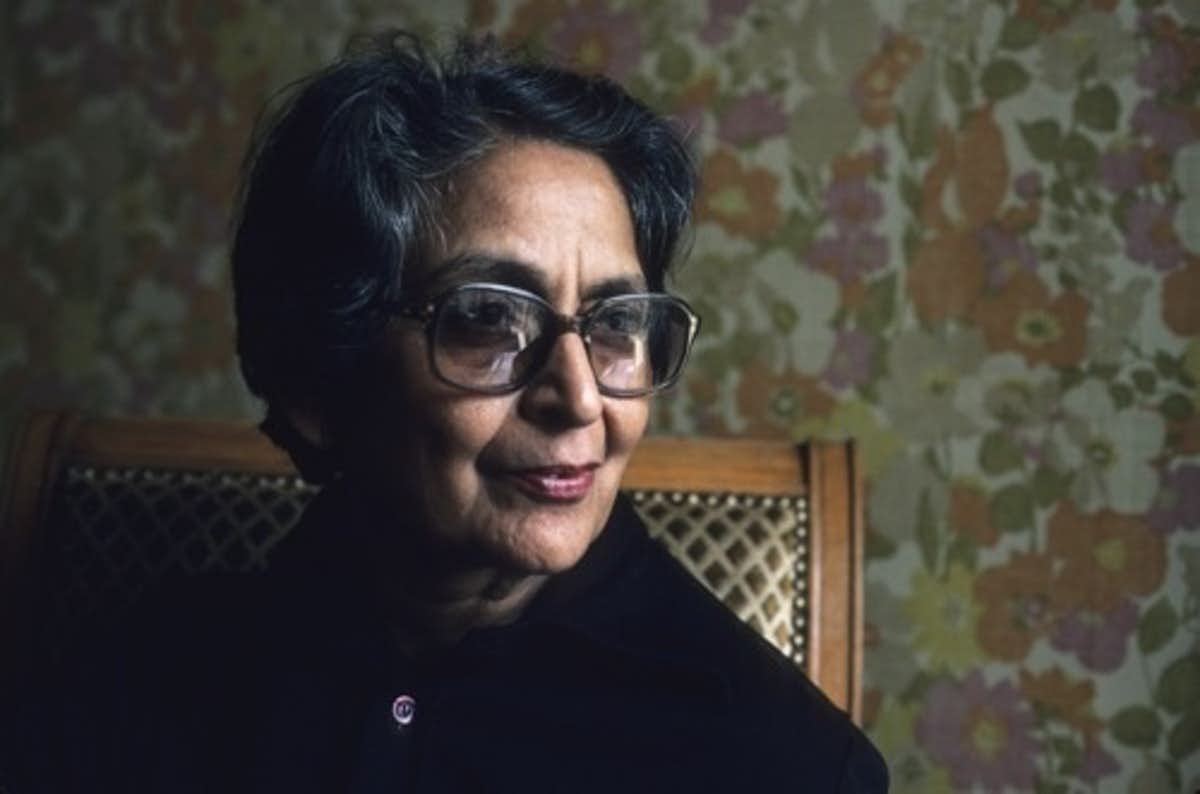Quick Reads
Silent lover, fierce writer
Amrita Pritam (1919-2005)

Every time love encountered Amrita Pritam, it knew it would rediscover its depth through her life. Although her marriage could not survive for long, her romance with the poet Sahir Ludhiyanvi in her later life, still remains as a tale of pure passion. Amrita was a poetess, a novelist and a fierce lover. Born in Gujranwala, Punjab (in present day Pakistan), on 31st August, 1919, Amrita Kaur discovered her poetic instincts at a very young age. Her first anthology of poems, Amrit Leheran, was published in 1936. In the same year, she got married to Pritam Singh.
Amrita's fate took a steep turn just like the million others, who survived the horrors of partition in 1947. Pregnant with her first child, Amrita moved to India during the partition. She could not contain the anguish and pain, and during that moment, her scarred heart inked down the most acclaimed nazm of her life, Ajj Akkhan Waris Shah nu, which remains a poignant account of the haunting riots of partition.
After moving to India, she worked at the Delhi facility of All India Radio till 1961. Sahir Ludhiyanvi had become the man of her dreams by then. Their silent expressions of love had become talk of the town. They met at a Mushaira one night, where Amrita immediately fell in love with Sahir. It is believed that, Sahir preserved a glass which Amrita drank tea from that night. In her novel, Rasidi Ticket, Pritam reveals the details of her so called infamous relationship with Sahir. She talks of how she smoked from Ludhiyanvi's discarded cigarette stubs in the pursuit of having more of him. However, Sahir never admitted his love for Amrita. Their love never found voice, but was ostensible enough for the world to admire from a distance.
Amrita's work reflected her life. Her failed marriage, the remorse of having to leave her home in Pakistan and her ventures with love, her poetry and novels were a fair glimpse of her life. Her poems imbued in the bitter-sweet emotions of love, kept stirring the hearts of several.
Although her poems in the initial years were romantic, she eventually developed a feminist approach in her writing. Her experiences with life got her inclined towards the Progressive Writers' Movement. Living by her own rules, Amrita waded through many societal and emotional impediments which made her one of the strongest female voices in the 20th century. Nirupama Dutt, a poetess, journalist and a dear friend to Pritam, called her "a feminist before feminists."
Her most celebrated novel, Pinjar is a heart-wrenching and a profound peek into the plights of a woman who suffered the repercussions of the partition. The misery and despair of a woman during the partition was mirrored in the novel where Puro, a girl abducted by a Pakistani man in order to avenge an ancestral conflict, is shown struggling through her unfortunate destiny that was being ruled by the patriarchal society. Amrita Pritam was the first woman to receive a Sahitya Akademi, in 1956 for Sunehade and highest literary award, Bhartiya Jnanpith in 1982 for Kagaz te Canvas. Her works found several platforms and were translated in many languages like English, French, Danish, Japanese, Mandarin. Her later works include Kaal Chetna, Agyaat Ka Nimantran, Kala Gulab and Aksharo Ke Saaye.
While she ruled the literary world, her life still sought a fulfiment of love. Even though her unrequited love for Sahir left her yearning for the romance she dreamt of, she never gave up on the idea of love. Very soon, anothers man came into her life. This man was none other than Imroz, an artist and also a writer. Their relationship was unique and probably beyond the understanding of the then conventional society. While the world failed to understand the uncommitted love between Sahir and Amrita, Imroz observed the romance and its divinity.
Imroz loved Amrita and, she found solace in his companionship, so much that Amrita could not help but spend rest of her life with Imroz. The only thing that could part them was death. On 31st of October, 2005, we lost Amrita Pritam forever. In her poem, 'Mai tujhe fir milungi', Amrita makes a promise to Imroz, a promise which involves uncertainty of time and place, the promise of meeting him again. Probably in the next life.





